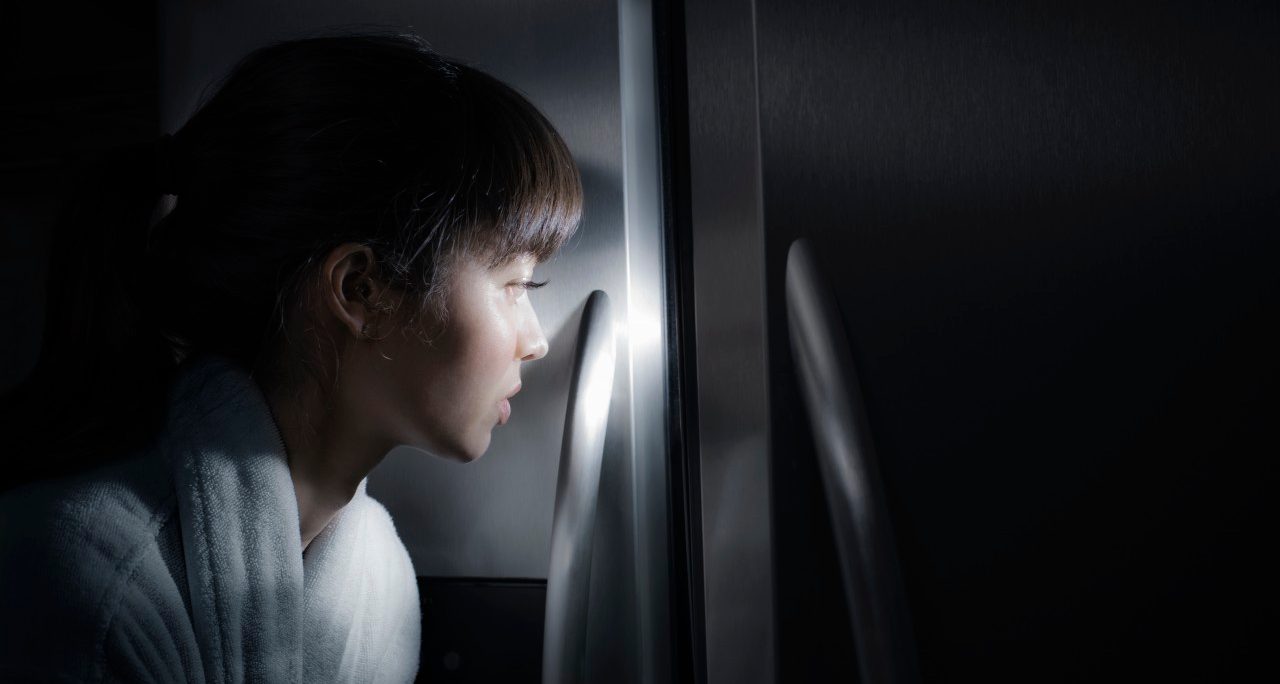Why Eating Late at Night Might Not Be Smart

Research suggests you have more to weigh than putting on pounds.
It’s the wee hours and you’ve woken up. What to do? If you’re like many people you will almost subconsciously head to the fridge, stick your head inside, and scope out something easy to eat before you jump back in bed.
Or, you’re one of about 15 million shift workers in the U.S., and your whole 24-hour cycle is topsy turvy — eating when you should be sleeping and vice versa. Next week, your schedule changes before you can get used to this week’s.
YOU MIGHT ALSO LIKE: Tips to Break Night-time Eating
Neurological research has now suggested you may be tinkering with your brain, specifically its ability to form memories and learn.
At the center of this recent finding by a research team at the University of California, Los Angeles, is the body’s circadian rhythms, internal clocks that regulate many biological processes and keep them on a regular schedule, which is essential to normal function, even prevention of disease.
In a mouse-based study, which has yet to be published, researchers looked at how the timing of eating affects those rhythms by giving the rodents food at times that were misaligned with when their internal clocks told them to eat.
What they learned in the eating study, which amounted to late night snacking by the mice, was that those who ate late had less sleep during the day (mice are nocturnal) and more sleep at night, when they should be active.
That, in turn, affected the hippocampus, the brain’s memory and learning center, which shifted it’s molecular clock according to when the mice were fed, and told researchers that memory was affected by food.
Tests then showed that the late snackers couldn’t remember a sound that was connected to a shock they would receive and didn’t recognize new objects in their cages.
A simple way to understand what resulted is to think about how you feel and think when jet-lagged. Your body may feel like it got hit by a truck, and your brain is fuzzier than a bad selfie.
One of the UCLA researchers, Christopher Colwell, PhD, a professor of psychiatry, says a loss of memory is well-documented in people whose circadian rhythms have been disrupted. Colwell and his team have focused their research on circadian rhythms and sleep for many years.
In the last few years, Colwell says, the team’s studies have shifted to translational research, meaning that they want to know the practical side of how basic biological mechanisms that regulate circadian rhythms work, how different diets may affect learning and memory, and whether eating itself is a tool that can be used to manipulate the internal clock.
That could turn out to be of great benefit for people with nervous system diseases that cause dysfunctional circadian rhythms and, then, a cascade of other problems.
No, you’re not a mouse. But they are used for a multitude of studies that can impact humans. In that sense, it’s probably better that you don’t raid the fridge late at night. If you do, maybe that’s why you can’t remember where you put your keys, or you stub your toe on the same chair you did two days ago.
At the very least, you’re disrupting your sleep pattern, and a good night’s sleep, as in uninterrupted, is essential to good physical and mental health.
If you have a night eating habit, you should see your doctor about it. There is a condition known as “night eating syndrome.” As the name suggests, one of the main symptoms is recurrent episodes of night eating, and a lack of appetite in the morning. That means the body’s clock is on one schedule for sleep, and another for hunger.
The syndrome has no known cause, but observational evidence suggests that it’s more prevalent in obese patients, people with anxiety and depression, and, according to some scientists, higher leptin levels in night eaters. Leptin is a hormone secreted by fat cells that signals satiety. It helps to control emotions, thoughts, and sensations related to eating.
Some scientists also suggest that another condition may be to blame — reactive hypoglycemia (drops in blood sugar), which occurs in pre-diabetics who may have a delayed insulin secretion hours after eating that can cause a disruption in sleep. A healthy person will emit insulin and experience blood sugar changes immediately following a meal as a reaction to the glucose they ate.
According to nutrition experts, the best way to prevent late-night eating is to have a regular meal schedule, the old advice to eat three balanced meals a day. If you feel the need to snack, you can switch to five meals a day, with smaller portions. Skipping a meal, however, can lower your blood sugar too much and increase the urge to overeat late into the night.
And, people who eat a hearty breakfast and a smaller dinner can lose weight more easily while shifting their cycle of eating to earlier in the day, when you can burn more calories with activity, research suggests. Eating later in the evening tends to store calories around your middle.
If you are waking up during the night, try to avoid the urge to eat as simply something to do because you’re awake.
You can get out of bed, even walk around a bit or sit in a chair in a different room for a while as a calming exercise, but don’t eat. Better yet, learn good sleep habits to avoid getting up, and the urge to eat, during the night.
Updated:
March 03, 2020
Reviewed By:
Christopher Nystuen, MD, MBA